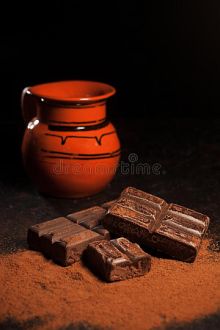Mexico City - The world may love chocolate, but it's Mexico's ancient ancestors who discovered it. Now the country is seeing a renewed reverence for chocolate.
Consumed across the globe, chocolate is among Mexico's great gifts to the world. Known to the Aztecs as Xocolatl, or the 'Food of the Gods,' today the Mesoamerican invention has become a global industry worth over $92 billion a year. Now a culinary movement Mexico is beginning to take a greater interest in cacao, the basis of all chocolate.
 |
It's a movement that is seeing Mexicans reconnect with their ancestors through ancient ceremonies that use cacao in the same way as Aztec emperors of old.
"What I felt since my first time was an enormous opening in my heart. Like you know, when you get the feeling of when you have done something amazing, like climbing a mountain. Like when you feel very happy about what you have achieved, and you can feel it throughout your body. That's what it feels like," cacao ceremony participant Tania Uribe, said.
The heightened interest has seen food businesses throughout the country expand their menus to incorporate cacao's versatility. Restaurateurs from across the capital regularly visit one of the city's most famous markets to source their beans.
However, the greater demand is in part due to a greater supply. It's one that the sellers in Mexico City said is grounded in the simple economics of the states where cacao originates.
"Now that the petrol industry is coming to an end for the people of Tabasco, which is where the cacao comes from, many have been left without work. So many are taking up the traditional work again, and Mexico City is bringing many of them to sell their products. There has been a lot of help for them to come here," Mercado Medellion Store Owner Claudia Palma said.
As the movement for real chocolate grows, its benefits appear to be equally wide-reaching. Mexicans are taking more interest in their cultural roots, and chocolate is taking center stage as one of their ancestors' greatest contributions to world heritage. It's a movement that not only inspires national pride, but benefits the country's poorest farming communities as well.
Original article


